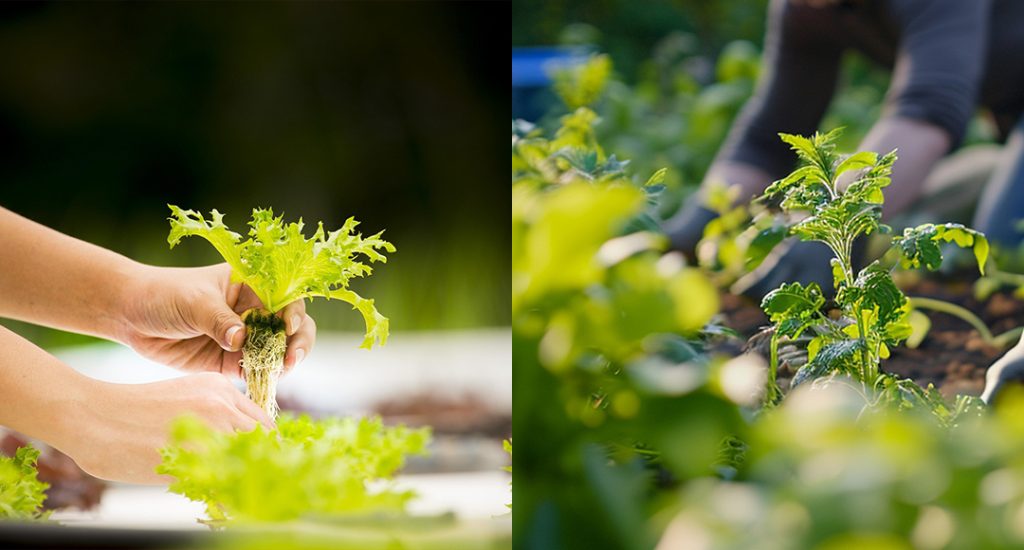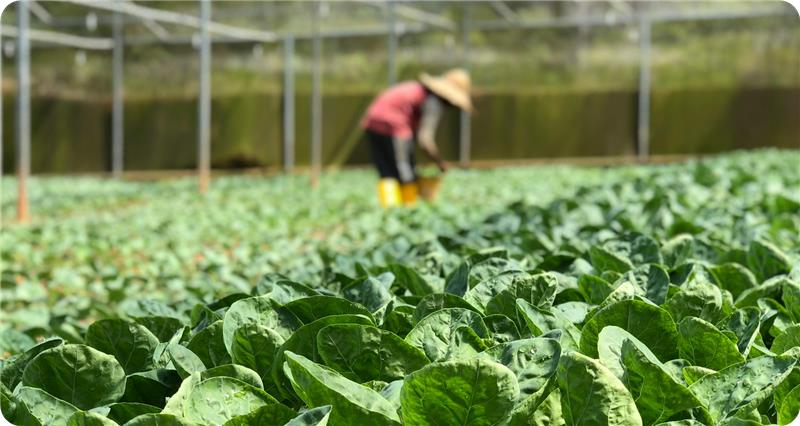Which is better—organic or conventional farming? The truth is, it depends. Each method has its pros and cons, and farmers weigh many factors before choosing their approach. Still, there are distinct differences between how organic and conventional systems operate.
Organic Farming
Organic farming relies on natural techniques to grow crops and raise animals, avoiding synthetic pesticides, herbicides, and fertilizers. Instead, it focuses on methods that enhance soil health, promote biodiversity, and sustain ecosystem balance.

What is Organic Farming?
Organic farming is a method of agriculture that focuses on producing food using natural substances and processes. It avoids synthetic chemicals like artificial fertilizers, pesticides, and genetically modified organisms (GMOs). Instead, it uses methods such as:
- Crop rotation
- Composting and natural fertilizers
- Biological pest control (using beneficial insects, for example)
- Animals are fed organically and treated with respect.
The goal is to maintain soil health, protect the environment, and produce food sustainably. Organic farms must follow strict certification standards (e.g., USDA Organic in the U.S.).
Key Features of organic Farming:
- Free from Synthetic Chemicals: Organic farming bans the use of chemical pesticides, herbicides, and synthetic fertilizers. It relies on natural methods such as compost, manure, and crop rotation to enhance soil fertility and manage pests.
- Soil Health: Emphasizes soil health through methods like cover cropping, mulching, and reduced tillage, which helps preserve soil structure and supports a rich microbial ecosystem.
- Biodiversity: Organic farms tend to promote higher biodiversity by providing habitats for wildlife, using crop rotations, and planting hedgerows and cover crops to reduce pest pressure and promote natural predators.
- Animal Welfare: Organic farming generally enforces higher animal welfare standards, such as providing outdoor access and limiting the use of antibiotics and growth hormones.
Pros:
- Eco-friendly: Organic farming practices are generally more sustainable, helping to preserve ecosystems and minimize pollution from synthetic chemicals.
- Healthier Food: Some studies suggest that organic foods may contain fewer pesticide residues and higher levels of certain nutrients.
- Soil Conservation: Organic practices focus on building and maintaining healthy, fertile soil.
Cons:
- Lower Yields: Organic farms generally have lower yields compared to conventional farming, which can limit the supply of certain crops.
- Higher Costs: Organic food tends to be more expensive due to the more labor-intensive practices and the cost of certification.
- Limited Pest Control: Without synthetic pesticides, organic farmers may face more challenges in controlling pests and diseases, which can lead to greater crop losses in certain conditions.
Conventional Farming
Conventional farming involves the use of modern agricultural techniques and technologies, including synthetic pesticides, herbicides, and fertilizers, to maximize crop yields and efficiency.
What is Conventional Farming?
Conventional farming is the most common farming method worldwide. It uses modern techniques and technologies to maximize food production, including:
- Synthetic fertilizers and chemical pesticides
- Genetically modified seeds (GMOs)
- Intensive animal farming
- Mechanized tools and irrigation systems
Conventional farming focuses on maximizing yields, efficiency, and reducing production costs. While it helps feed large populations, it may have greater environmental impacts, such as soil degradation or pollution, if not managed carefully.
Key Features of Conventional farming:
- Use of Synthetic Chemicals: Conventional farming relies on chemical pesticides, herbicides, and synthetic fertilizers to boost crop production, manage pests, and control weeds.
- Monoculture: Conventional farms often grow a single crop over large areas (monoculture), which can increase efficiency but may deplete the soil of specific nutrients and increase vulnerability to pests.
- Technological Inputs: It often incorporates advanced machinery, irrigation systems, and genetically modified organisms (GMOs) to improve productivity and resistance to diseases.
- Animal Practices: Conventional farming tends to use factory farming practices for livestock, focusing on high production rates and efficiency, sometimes at the cost of animal welfare.
Pros:
- Higher Yields: Conventional farming generally produces higher yields per acre due to the use of synthetic fertilizers, pesticides, and modern farming techniques.
- Lower Food Costs: The increased efficiency of conventional farming tends to lower food prices for consumers.
- Scalability: Conventional methods can be scaled up more easily, helping to feed large populations.
Cons:
- Environmental Impact: The use of synthetic chemicals can harm ecosystems, pollute water supplies, and degrade soil health over time.
- Health Concerns: The long-term effects of pesticide and herbicide residues on human health are still debated, but concerns over their potential to contribute to health issues like cancer, hormone disruption, and antibiotic resistance are common.
- Biodiversity Loss: Monoculture farming and intensive land use can reduce biodiversity, leading to a greater reliance on chemicals to control pests and diseases.
Both organic and conventional farming have their pros and cons. Organic farming is usually more sustainable and eco-friendly, though it can be costlier and less efficient. Conventional farming excels in terms of yield and affordability but can have a more significant environmental and health impact due to the reliance on chemicals and monoculture practices.













